Discover The Twenty Minute VC (20VC): Venture Capital | Startup Funding | The Pitch
The Twenty Minute VC (20VC): Venture Capital | Startup Funding | The Pitch

The Twenty Minute VC (20VC): Venture Capital | Startup Funding | The Pitch
Author: Harry Stebbings
Subscribed: 11,575Played: 360,487Subscribe
Share
© 2015 The Twenty Minute VC
Description
The Twenty Minute VC (20VC) interviews the world's greatest venture capitalists with prior guests including Sequoia's Doug Leone and Benchmark's Bill Gurley. Once per week, 20VC Host, Harry Stebbings is also joined by one of the great founders of our time with prior founder episodes from Spotify's Daniel Ek, Linkedin's Reid Hoffman, and Snowflake's Frank Slootman.
If you would like to see more of The Twenty Minute VC (20VC), head to www.20vc.com for more information on the podcast, show notes, resources and more.
If you would like to see more of The Twenty Minute VC (20VC), head to www.20vc.com for more information on the podcast, show notes, resources and more.
1381 Episodes
Reverse
Carl Rivera is the Chief Design Officer at Shopify, where he previously led both Merchant Services and the Shop App as VP of Product. Before joining Shopify through its acquisition of Tictail, Carl was the co-founder and CEO of Tictail, the "Tumblr for e-commerce," where he built one of the most beloved design-forward commerce platforms of its era. AGENDA: 05:05 Biggest Lessons from Selling My Company to Shopify 09:55 Where Does Shopify Suck at Product: Lessons from that? 17:37 What makes Truly Great product Design: The Five Pillars 31:02 The Future of Design in an AI-Driven World 36:00 Do We Skip the Design Phase in AI: Figma's Evolving Role in Design 40:09 Remote Work vs. In-Person Collaboration: Where Remote Loses? 42:43 What Happens to the Vibe Coding Market 47:06 Product Management and Team Dynamics 59:48 Does AI Favour Incumbents or Startups
AGENDA: 04:22 Sequoia's Leadership Transition 09:46 Michael Burry's Big Short on Nvidia and Palantir 17:41 Gamma Raises $100M at a $2BN Valuation 32:34 Does Defensibility Exist Today When Copying is Easy 40:31 Should All Funds Be Way More Diversified 47:12 How to Run a Fundraising Process & What Not To Do 57:57 Datadog Surges 20% and Duolingo Crashes: What Happened
Ev Randle is a General Partner @ Benchmark, one of the best funds in venture capital. In their latest fund, they have Mercor ($10BN valuation), Sierra ($10BN valuation), Firework ($4BN valuation), Legora ($2Bn valuation) and Langchain ($1.4Bn valuation). To put this in multiples on invested capital, that is a 60x, two 30x and two 20x. Before Benchmark, Ev was a Partner @ Kleiner Perkins and before Kleiner, Ev was an investor at Founders Fund and Bond. AGENDA: 05:25 Biggest Investing Lessons from Peter Thiel, Mary Meeker and Mamoon Hamid 14:36 OpenAI Will Be a $TRN Company & OpenAI or Anthropic: Who Wins Coding? 22:27 Why We Should Not Focus on Margin But Gross Dollar Per Customer 30:25 Why AI Labs are the Biggest Threat to AI App Companies 44:26 Do Benchmark Fire Founders? If so… Truly the Best Partner? 54:38 People, Product, Market: Rank 1-3 and Why? 57:36 Why the Mega Funds Have Just Replaced Tiger 01:04:08 GC, Lightspeed and a16z Cannot Do 5x on Their Funds… 01:14:09 Single Biggest Threat to Benchmark
Chad Peets is one of the greatest sales leaders and recruiters of the last 25 years. From 2018 to 2023, Chad was a Managing Director at Sutter Hill Ventures. Chad has worked with the world's best CEOs and CROs to build world-class go-to-market organizations. Chad is currently a member of the Board of Directors for Lacework and Luminary Cloud and on the boards of Clumio and Sigma Computing. He previously served as a board member for Astronomer, Transposit, and others. He was an early-stage investor at Snowflake, Sigma, Observe, Lacework, and Clumio. In Today's Discussion with Chad Peet's We Discuss: 1. You Need a CRO Pre-Product: Why does Chad believe that SaaS companies need a CRO pre-product? Should the founder not be the right person to create the sales playbook? What should the founder look for in their first CRO hire? Does any great CRO really want to go back to an early startup and do it again? 2. What Everyone Gets Wrong in Building Sales Teams: Why are most sales reps not performing? How long does it take for sales teams to ramp? How does this change with PLG and enterprise? What are the benchmarks of good vs great for average sales reps? How do founders and VCs most often hurt their sales teams and performance? 3. How to Build a Hiring Machine: What are the single biggest mistakes people make when hiring sales reps and teams? Are sales people money motivated? How to create comp plans that incentivise and align? Why does Chad believe that any sales rep that does not want to be in the office, is not putting their career and development first? Why is it harder than ever to recruit great sales leaders today? 4. Lessons from Scaling Sales at Snowflake: What are the single biggest lessons of what worked from scaling Snowflake's sales team? What did not work? What would he do differently with the team again? What did Snowflake teach Chad about success and culture and how they interplay together?
AGENDA: 04:27 Navan's IPO: Winners, Losers and 20% Crater 12:55 Harvey Raises $150M at an $8BN Valuation 35:36 Was Sam Altman Wrong to Snap at Brad Gerstner 41:25 Why GOOG is a Buy and Amazon is a Short 47:43 Meta Down 10%, Buy or Sell? 51:12 If You Have Not Accelerated with AI, You Are Dead 01:05:20 Why Now is the Best Time for Series A and Worst for Seed
Joelle Pineau is the Chief AI Officer at Cohere, where she leads research on advancing large language models and practical AI systems. Before joining Cohere, she was VP of AI Research at Meta, where she founded and led Meta AI's Montreal lab. A professor at McGill University, Joelle is renowned for her pioneering work in reinforcement learning, robotics, and responsible AI development. AGENDA: 00:00 Introduction to AI Scaling Laws 03:00 How Meta Shaped How I Think About AI Research 04:36 Challenges in Reinforcement Learning 10:00 Is It Possible to be Capital Efficient in AI 15:52 AI in Enterprise: Efficiency and Adoption 22:15 Security Concerns with AI Agents 28:34 Can Zuck Win By Buying the Galacticos of AI 32:15 The Rising Cost of Data 35:28 Synthetic Data and Model Degradation 37:22 Why AI Coding is Akin to Image Generation in 2015 48:46 If Joelle Was a VC Where Would She Invest? 52:17 Quickfire: Lessons from Zuck, Biggest Mindset Shift
🎧 20VC x Tim Ferriss — Full Episode Timeline 00:00 – "How Do You Stay True to Yourself When You Have to Perform for the World?" 06:00 – "Why Tim Ferriss Refused to Go All-In on YouTube" 09:00 – "You Don't Need 10 Million Fans—You Need 1,000 True Believers." 12:00 – "The Internet Is Not a Relevance Machine—It's a Sensationalism Machine." 15:00 – "Money Fixes Money Problems—And Nothing Else." 22:30 – "When Did Tim Ferriss Feel Completely Lost?" 27:00 – "The Million-Dollar Mistake That Still Haunts Tim Ferriss." 36:00 – "Why Tim Ferriss Never Raised a Fund—Even Though He Could Have." 45:00 – "The Truth About Uber, Duolingo, and the Power of Relationship Investing." 54:00 – "Why Tim Ferriss Stopped Angel Investing at His Peak." 1:04:00 – "The Podcast That Changed Everything." 1:15:00 – "The Real Cost of Love: Is Efficiency Killing Connection?" 1:31:00 – "What Tim Ferriss Has Changed His Mind About Most." 1:36:00 – "Erections Matter."
AGENDA: 05:17 OpenAI's Restructuring: Winners and Losers 17:17 Andreessen Horowitz's Raise $10BN in New Funds 26:38 Mercor Raises $350M at a $10BN Valuation 43:08 Spray and Pray: Does it Work: Data Breakdown 47:04 The Role of Option Checks Venture Capital 48:36 The Three Ways to Win in VC Today 54:26 Why IRR is a BS Metric and What Matters More 01:08:47 Amazon's Struggles: How Do They Return to Greatness in AI
David Cahn is a Partner at Sequoia Capital and one of the world's leading AI investors. At Sequoia David has led investments in Clay, Juicebox, Sesame, Kela, Stark, etc.. Before Sequoia, David was a General Partner @ Coatue where he led investments in Notion and Hugging Face. AGENDA: 00:00 We Are in an AI Bubble 05:04 Why Building Physical Data Centres is a Moat 13:58 Winners and Losers in a World of AI 19:13 The Role of Big Tech and Monopolies 23:37 Breaking Down Circular Deals in AI: The Truth No One Sees? 38:19 Why Kingmaking is BS and VCs Do Not Make or Break Companies 41:30 The Importance of Margins in AI Investments 43:41 The Required Growth Rates in AI to Get Funded by Sequoia 45:30 The $0-$100M Revenue Club: Is Triple, Triple, Double, Double Dead? 51:53 Why the Most Important Hire for Startups Today is 23 Year Olds 01:01:19 The Future of Defence: Who Wins and Who Loses 01:10:15 Quickfire: Biggest Miss, Parenting Advice, Doug Leone Advice
Sandy Diao is one of the most exceptional growth leaders of the last decade. Sandy has scaled products to over 200M+ users and led growth teams at Descript, Meta and Pinterest. She is also a prolific writer all on things growth here. AGENDA: 03:59 Biggest Growth Lessons from Pinterest 08:01 What is a Good vs a Bad Growth Hypothesis 11:11 Common Mistakes in Growth Strategies 14:57 Channel Fit: When You Have It & What To Do 25:43 Return on Ad Spend (ROAS) 101: How to Build a Paid Marketing Machine 30:08 How to Do SEO and Long-Term Growth Investments 33:22 Doubling Down on Successful Channels 36:31 The Unchanging Foundations of SEO 37:52 Generative AI Engines vs. Traditional Search Engines 41:12 Paid Marketing Channels: What's Overrated? 43:42 The Rise of User-Generated Content (UGC) 46:34 TikTok Ads: Expectations vs. Reality 49:55 Brand Marketing: What is Real vs What is BS? 53:33 The Importance of Feature Launches 01:01:50 Hiring for Growth: When and Who? 01:08:55 Quick Fire Round: Onboarding, Notifications, and Growth Channels
AGENDA: 04:50 Benchmark's New Partner: Everett Randall 10:19 Revolut Raises $3BN at a $75BN Valuation: Another Loss for Public Markets? 28:39 Why Today is as Bad as the Hype of COVID in 2021 32:10 Why Vertical SaaS is a Bad VC Investment Today 36:14 Why Everyone Investing in Legal SaaS Will Lose Money 44:16 Why King Making is More Real Than Ever 55:23 Why Your Smallest Customers Need to Pay $10K Minimum 01:01:37 Why VC is a S*** Asset Class 01:09:29 Why Today is Harder Than It Has Ever Been in VC 01:25:18 Closing Thoughts and Reflections
Alex Bouaziz is the Co-Founder and CEO @ Deel, the $17BN global payroll juggernaut that just last week announced their latest $300M fundraise led by Ribbit, a16z and Coatue. Deel has been on the most insane journey, they do $1BN+ in ARR, they just had their first $100M revenue month and they have been profitable for over 3 years. AGENDA: 03:38 Announcing $300M Fundraise at a $17BN Valuation 06:24 Rippling vs Deel: WTF is Going On? Where is the Lawsuit? 14:01 Why 1-1s Are BS and Leaders Should Stop Doing Them 17:31 Do Rich Leaders Make Better Leaders 28:33 Biggest Lesson from Ben Horowitz? Why Most CMOs Are Bad? 34:48 Lessons from Nik @ Revolut and Why Companies Need to Make Their Own Software 42:23 Deel's Acquisition Playbook: Lessons from 13 Acquisitions 45:17 How to Price Acquisitions? How to Align Incentives with Founders? 55:45 Deel is Profitable and Growing Fast: When is the IPO? 01:01:35 Best Acquisition Ever + Worst Ever: What Did We Learn?
Zach Lloyd is the Founder and CEO of Warp, the next-generation developer terminal reinventing how engineers build and collaborate. Warp has raised over $70M from top-tier investors including Sequoia Capital, GV, Dylan Field, and Elad Gil. Before founding Warp, Zach was Principal Engineer at Google, where he led development of Google Docs, and later served as CTO at Time. He's one of the most respected engineering minds redefining the future of developer tools. AGENDA: 04:14 Biggest Product Lessons from Rewriting Google Sheets 07:10 Why I Would Short Google: Leadership and AI Strategy 09:55 Comparing AI Models: GPT, Claude, and Gemini: Who Wins and Loses 17:04 Do Margins Matter in AI? 24:57 Adding $1M in ARR Every Week: Is Triple, Triple, Double, Double Dead? 33:58 How to Build Defensibility in a World of AI? 43:05 OpenAI vs Anthropic: Who Wins and Why? 44:25 Biggest Fundraising Lessons Raising from Sequoia, Elad Gil and GV 50:56 Why Sequoia are the Best VC 53:51 What Every Founder Gets Wrong in Fundraising 01:01:30 Quick Fire Questions and Final Thoughts
AGENDA: 03:44 Rory Is So Old He Worked with Arthur Rock!!! 07:28 Goldman Sachs Acquires Industry Ventures for $665M 16:37 Thinking Machines Co-Founder Raises $2BN and Then Leaves for Meta 29:36 SoftBank Goes for $5BN Leverage Against ARM Stock To Buy More OpenAI 39:35 More Data Centres Than Offices: Are We In a Bubble 43:28 Where is the Alpha in Venture in 2025 51:48 What 90% of Managers Get Wrong About Portfolio Management
Mike Cannon-Brookes is the Co-Founder and Co-CEO of Atlassian, the $50BN software giant behind products like Jira, Confluence, and Trello. Since founding the company in 2002, he has scaled it to over 300,000 customers globally, generating more than $5BN in annual revenue. Atlassian now employs over 10,000 people across 13 countries and is one of the most successful bootstrapped-to-IPO stories in tech history. Mike is also a leading climate investor and co-owner of several major sports teams. AGENDA: 00:00 Why Unreasonable Men Win in Startups 07:22 How to Make Co-CEOs Work 13:22 Are We in an AI Bubble? Is Everything Overvalued? 26:46 The Future of Software Development: More or Less Devs 32:53 Do Margins Matter in a World of AI 34:02 The Future of Vibe Coding… 36:35 Does Defensibility Exist in a World of AI 42:09 Is Per Seat Pricing Dead in a World of AI 49:01 The Founder Journey and Leadership 54:28 Quick Fire Round: Parenting Advice, Relationship to Money
Chris Degnan is the former Chief Revenue Officer at Snowflake, where he was instrumental in scaling the company from less than $1M in ARR to over $3B in annual revenue. He joined as the first sales hires and built Snowflake's go-to-market engine from scratch, growing the team from to more than 6,000 globally. Under his leadership, Snowflake became one of the fastest-growing enterprise software companies in history, achieving a record-breaking IPO in 2020. AGENDA: 04:34 How to Build a Sales Team from Scratch 07:49 How to Hire and Evaluate Sales Leaders 15:23 Four Big Lessons Scaling Snowflake to $3BN ARR 31:30 Comparing Snowflake and Databricks: What Databricks Did Better? 35:26 How to Manage Sales Team Morale in Competitive Markets 43:53 Why Customer Success is BS and What To Do With It 48:31 How Every Sales Leader Needs to Change in An AI World 49:37 Biggest Reflections on Sales Leadership 54:38 Quick Fire Questions and Final Thoughts 20Sales: Scaling Snowflake from $0-$3BN in ARR | Snowflake vs Databricks: My Biggest Lessons | Why Customer Success is BS and What Replaces It with Chris Chris Degnan
AGENDA: 03:29 OpenAI and AMD's Major Partnership 07:35 Microsoft Have F***** Up the OpenAI Partnership 17:08 OpenAI's Developer Day Announcements 20:45 Why VC is the Most Forgiving Asset Class on Price and Valuation 29:10 What Does it Take to IPO in 2025: Why Snyk Will Not IPO 42:30 Four Strategies Companies Need to Take to Own Their Own Destiny 49:31 Vercel Raises $300M at $9BN: Suicide Round or Strategic 55:39 Does King Making Really Work in Venture Capital: Legora vs Harvey 01:08:11 Chamath Raises Latest SPAC: SPACs are Back 01:10:56 Polymarket Raises $2BN at a $9BN Valuation 01:14:53 Quick Fire Questions and Wrap-Up
Andrew Feldman is Co-Founder & CEO of Cerebras, building the world's fastest AI inference and training. Cerebras recently closed a $1.1BN Series G round at an $8.1 billion valuation, backed by top names including Fidelity, Atreides, Tiger Global, Valor Equity and 1789 Capital. Under his leadership, they've leapfrogged GPU limits in inference, operate at trillions of tokens per month, and are filing to go public soon. AGENDA: 02:43 Why We Did Not IPO and Raised $1BN From Fidelity 05:03 Analysis of Chip and Compute Landscape Today 07:14 NVIDIA Showing Signs They Are Running Out of Ideas 13:57 The Real Questions to Ask on Chip Depreciation 24:54 Energy Requirements for AI: Is it Feasible? 29:25 Mag7 Value Concentration: Feature or a Bug 31:57 Talent is the Bottleneck and Trump Makes it Worse 32:55 The War for Talent: Secrets No One Sees 34:22 Evaluating the Data Centre Economy: Many Will Lose Money 38:01 Three Changes the US Could Make to Beat China in AI 42:30 Why 80% of our Revenues are in the UAE 47:26 Quick Fire Questions 58:59 Why Work Life Balance is Total BS
Ketty Slonimsky is Chief Growth Officer at Palta, the platform behind apps like Flo (the #1 female health app with 77M+ MAU), Simple, and Zing AI, where she leads a centralized growth function across the portfolio. She was previously first VP Product & Growth at HeliosX (£900M+ ARR, bootstrapped D2C healthtech), has advised companies like SonderMind, Runna, Guardio, Cheddar, P&G Digital Ventures, and is a board advisor at HeliosX. AGENDA: 02:33 What is Growth and When to Hire For It 06:04 Three Profiles of Successful Growth Leaders 10:07 Challenges and Learnings from Failed Ventures 21:17 How to Optimise User Onboarding for Growth 26:14 Biggest Lessons on Retention 30:25 How to Artificially Create Organic Growth and Community Building 32:10 Why LTV Models are BS 37:35 How to Use Influencers to Grow Insanely Fast 47:07 The Metrics that Matter in Growth 49:48 Push Notifications and Engagement: What To Do vs What Not to Do? 51:57 Quick Fire Round
AGENDA: 03:58 Understanding Burn Multiples and Capital Efficiency in an AI World 11:54 What Metrics Founders Need to Focus on in a World of AI 19:31 The Role of Kingmakers in Venture Capital: Harvey, Abridge, Profound 33:42 Klarna, Figma, Stubhub, all Down: Are Public Markets Turning? 36:35 OpenAI Needs the Same Energy as Japan… WTF! 41:09 How Can We Fund the $1TRN Sam Altman Needs for Energy 52:39 FiveTran and DBT: Is the Wave of Consolidation About to Begin? 59:44 Does Private Equity Need to Change in a World of AI 01:06:23 Political Expression and Corporate Responsibility


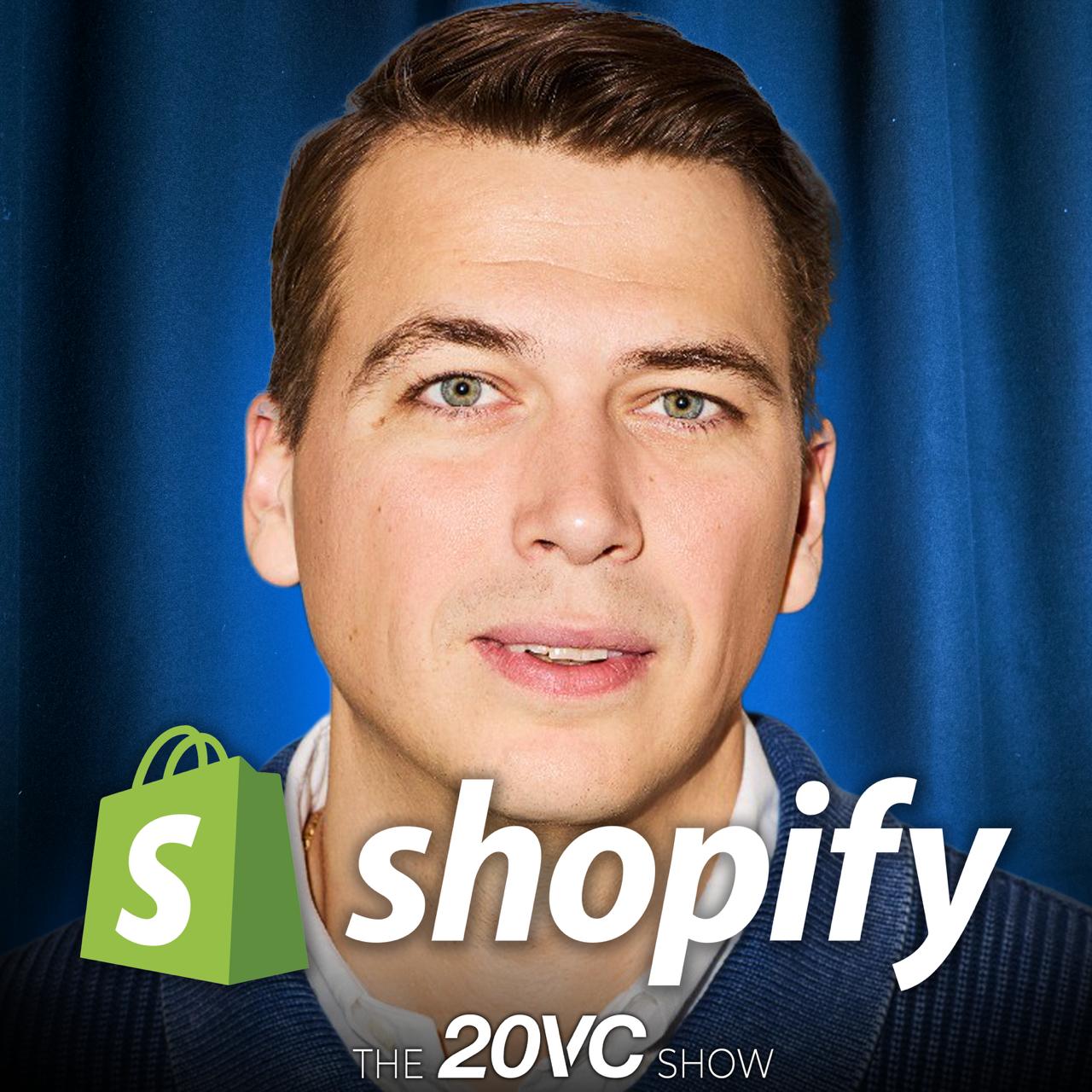
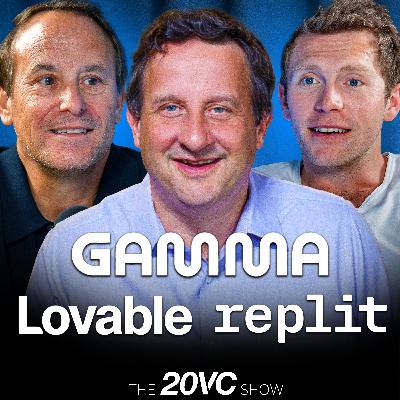
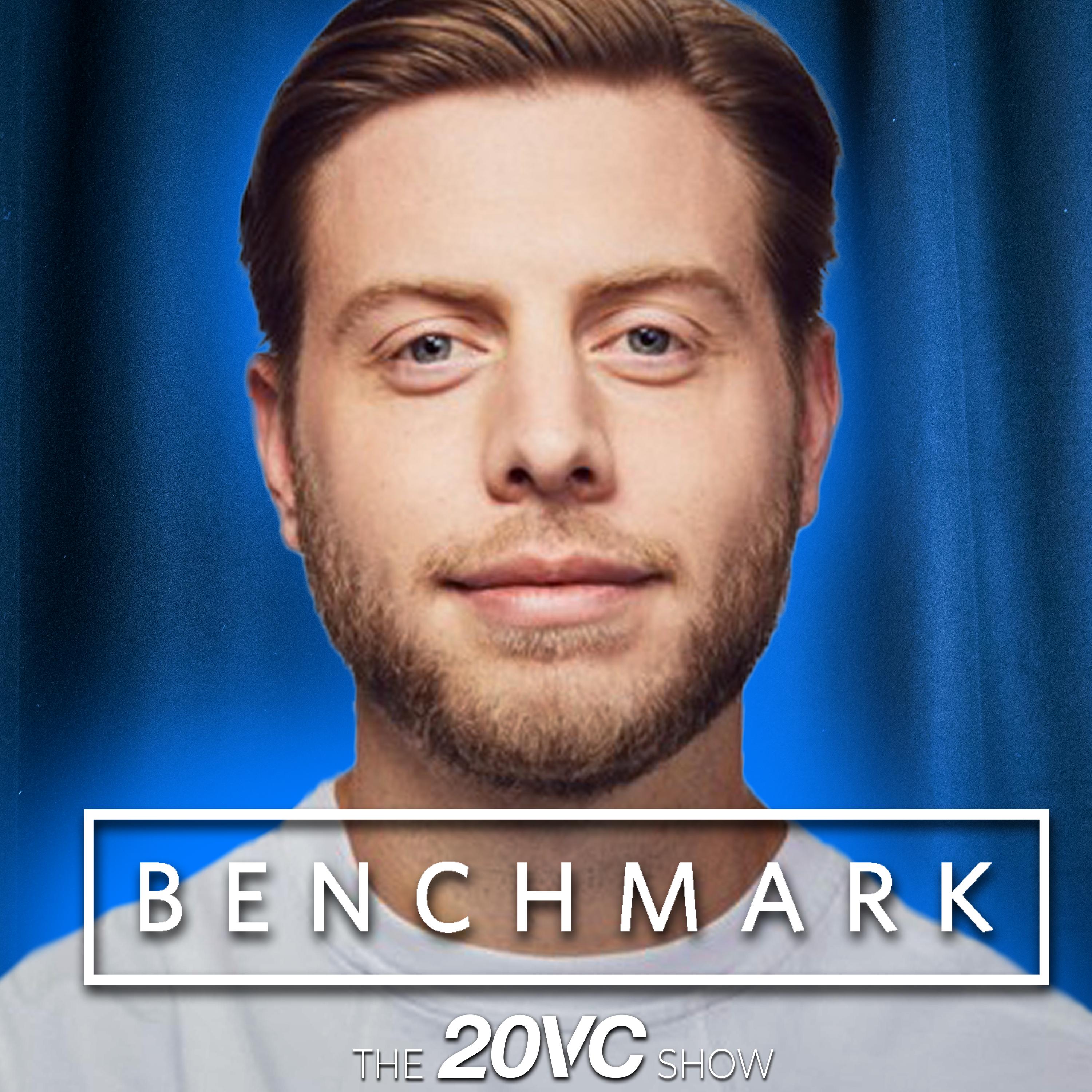
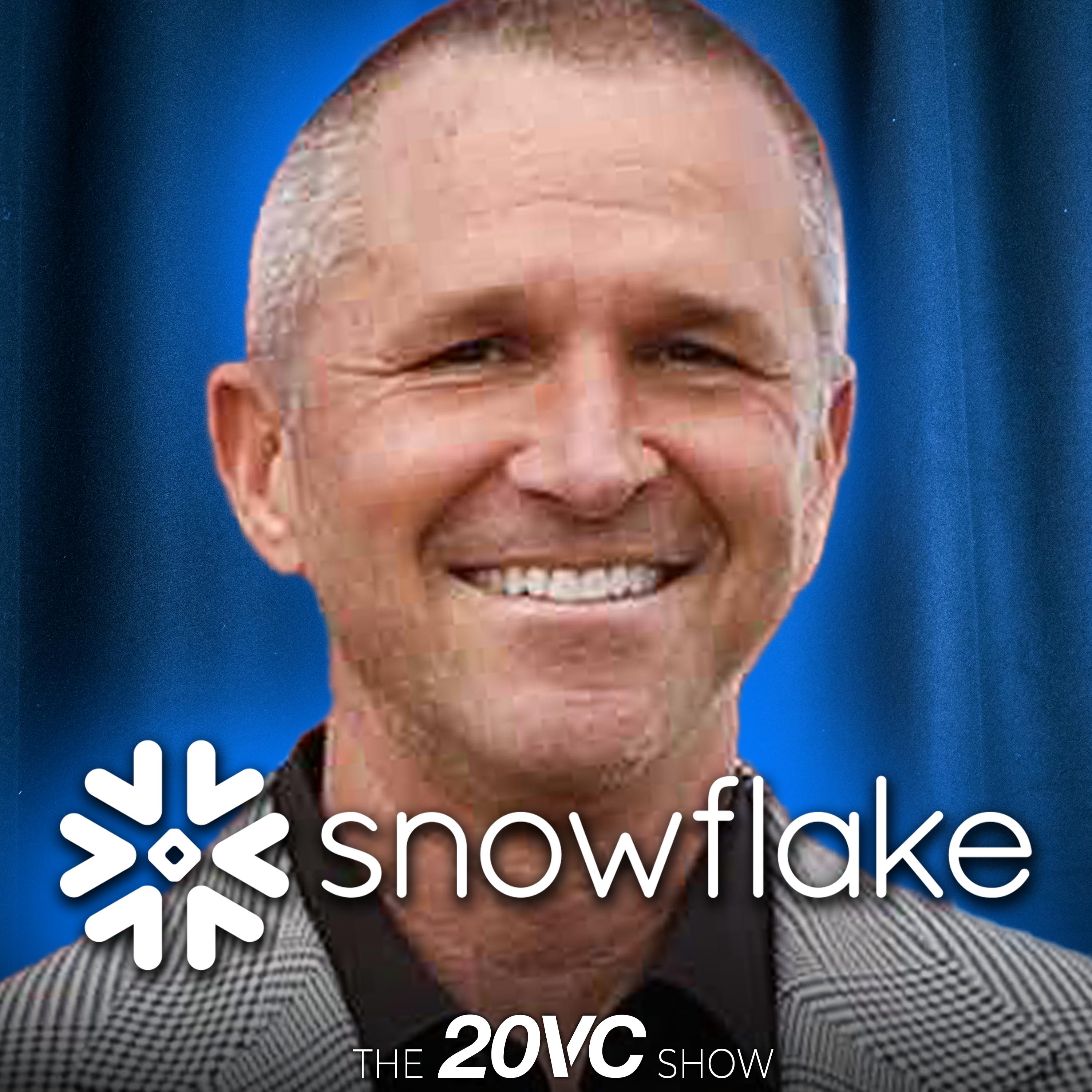
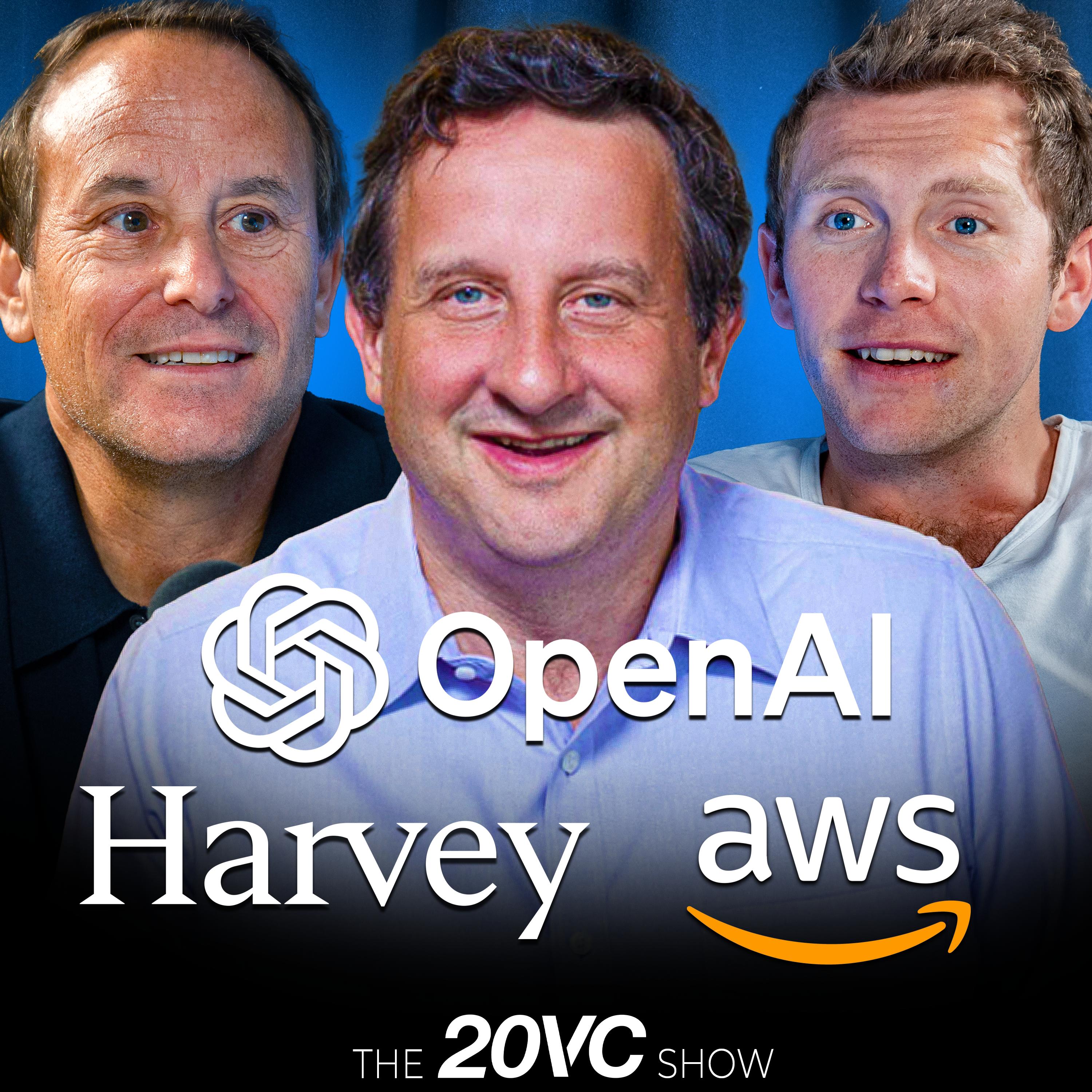
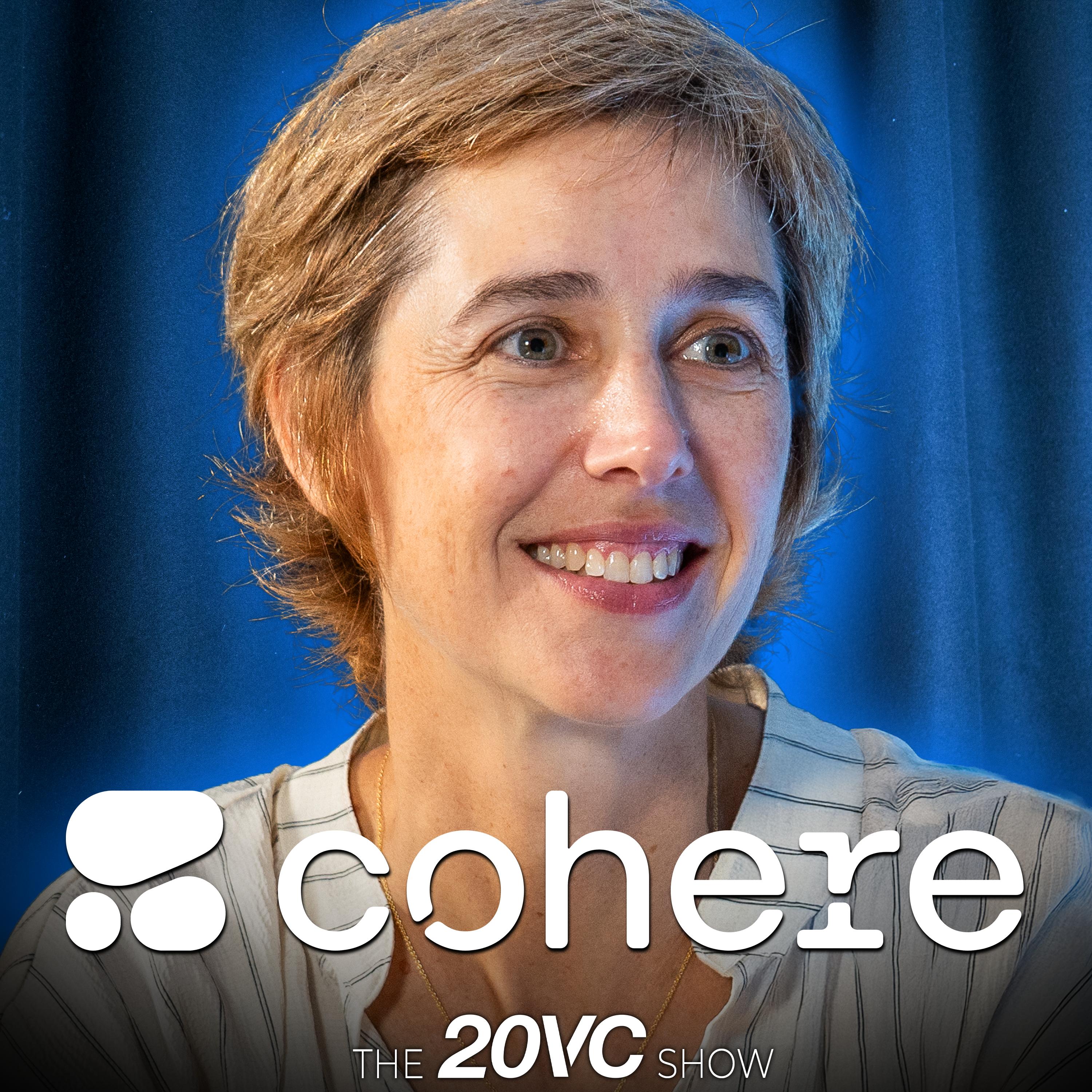
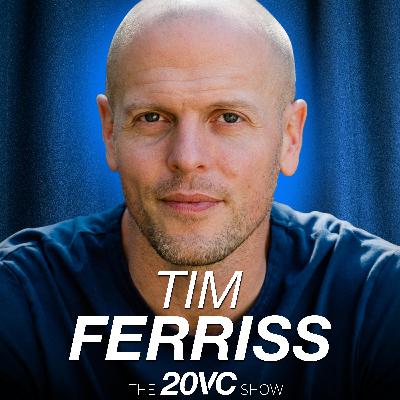
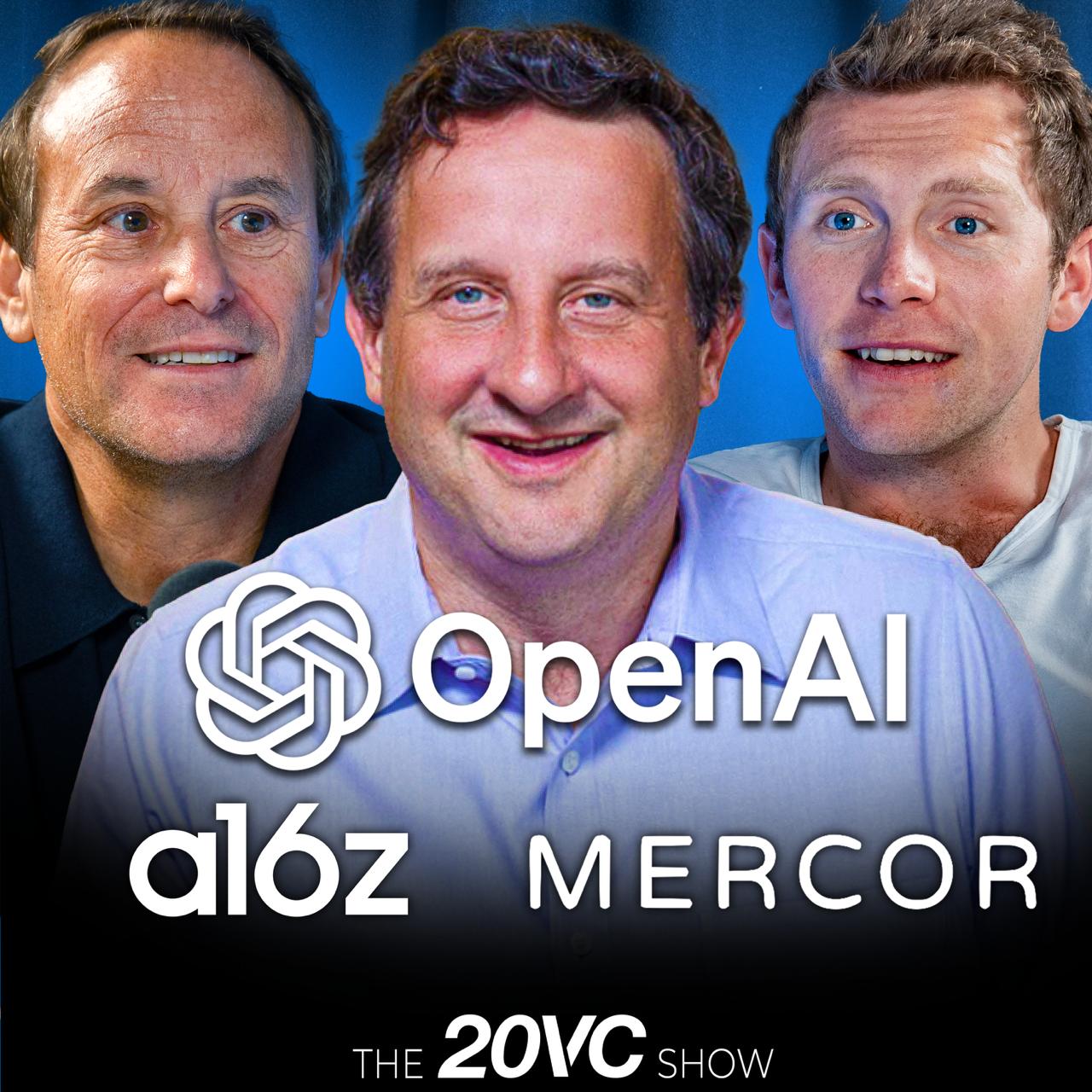
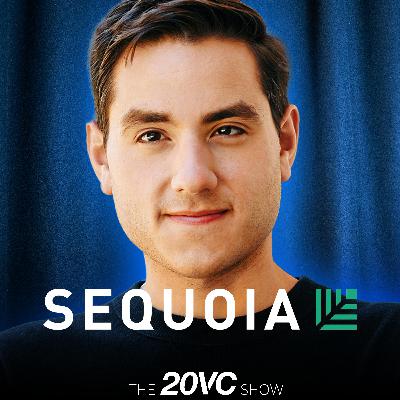

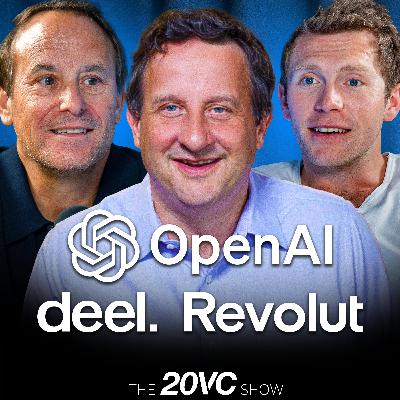
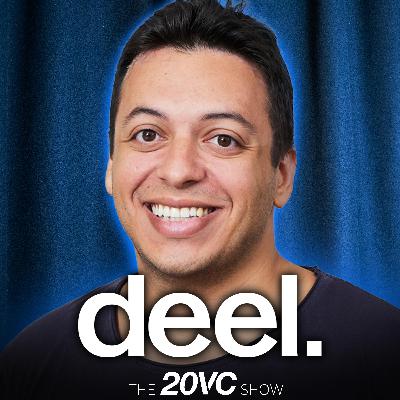
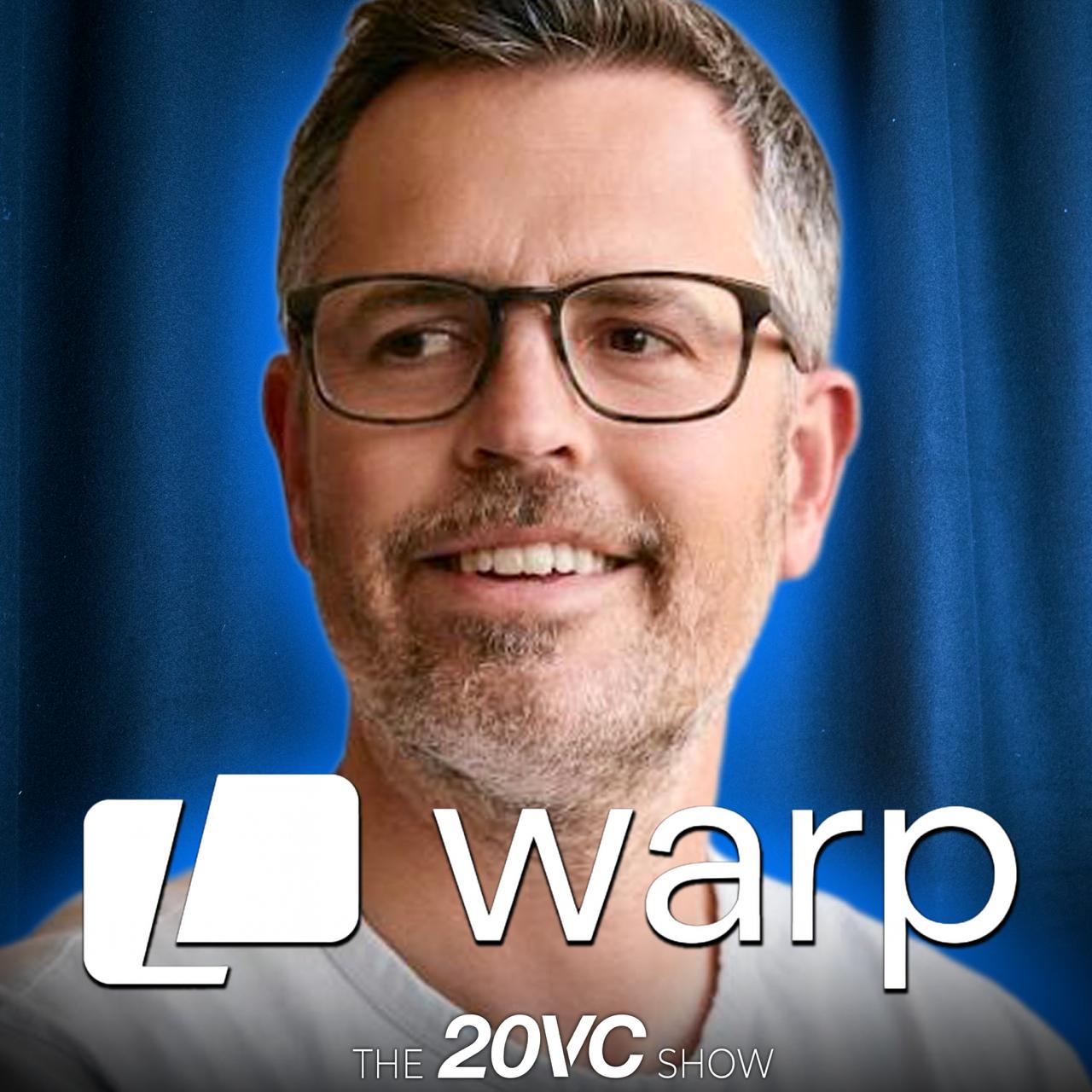
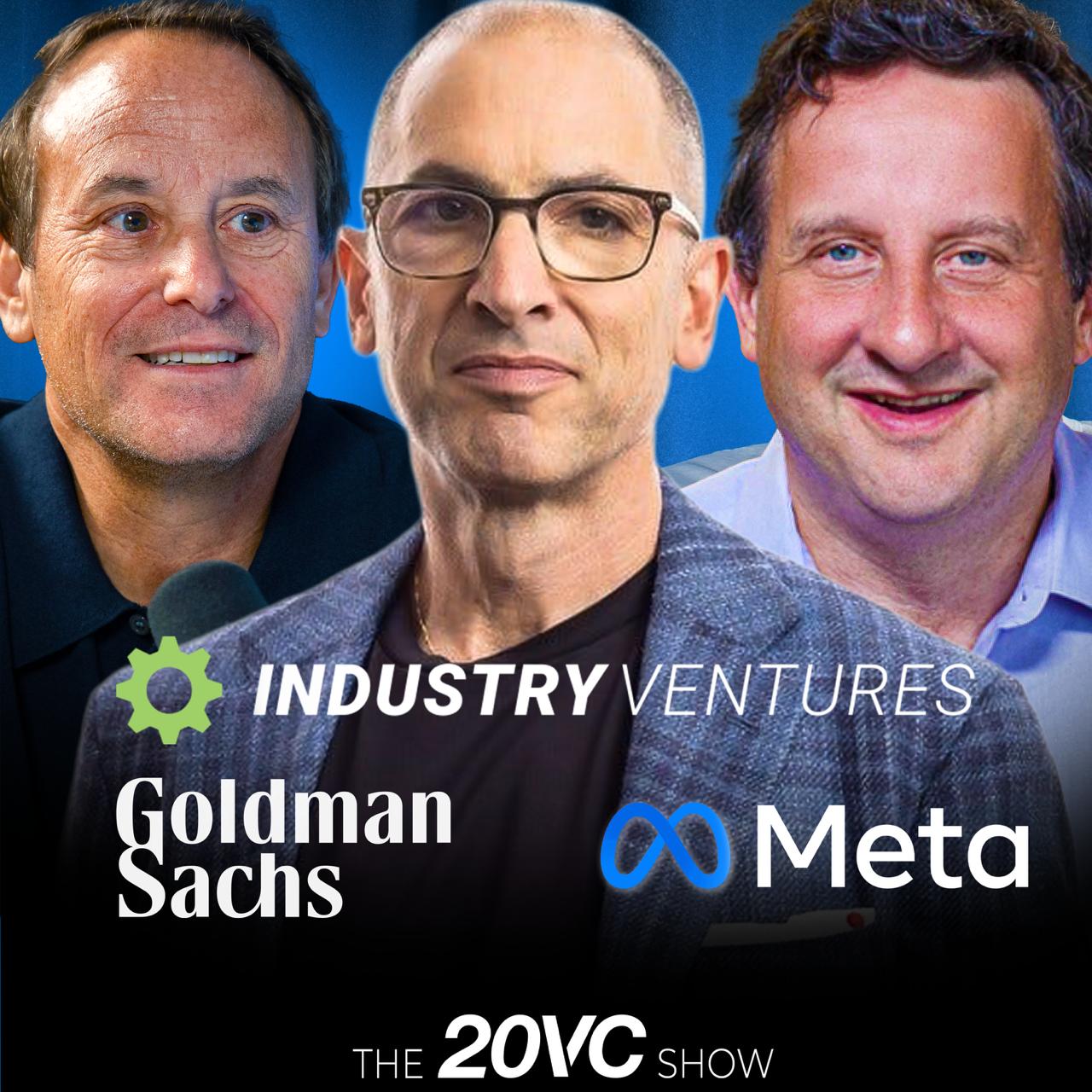

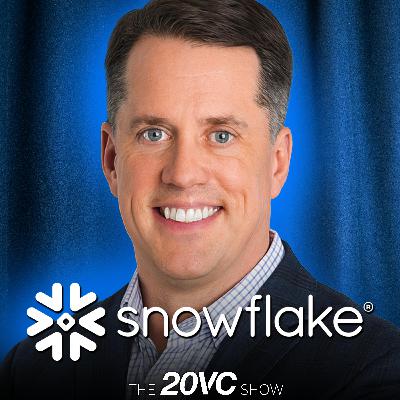
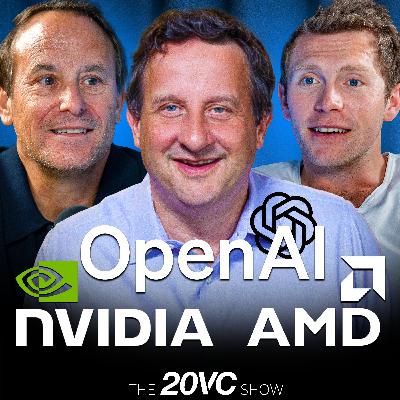
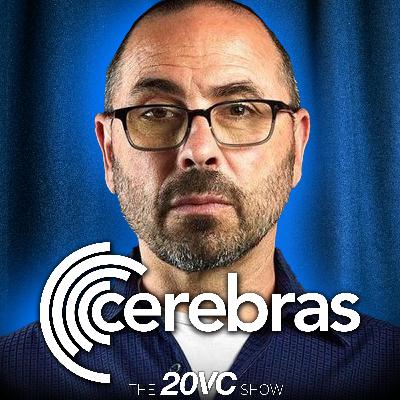
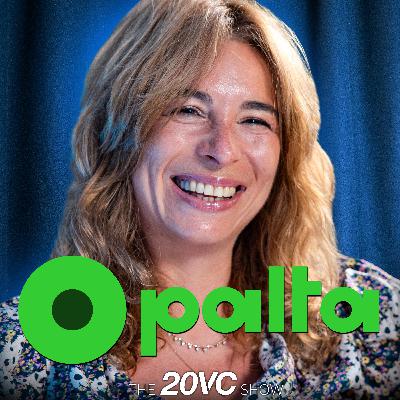
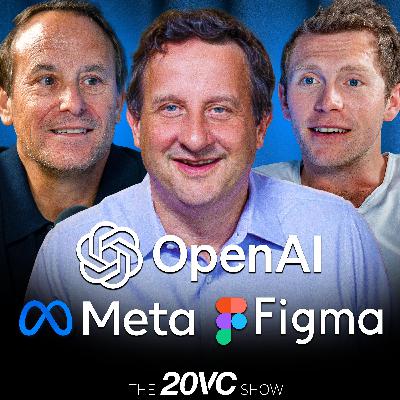



Timestamps!!
💚WATCH>>ᗪOᗯᑎᒪOᗩᗪ>>LINK>👉https://co.fastmovies.org
nice
A cool podcast where you can find a lot of useful information about venture capital. By the way, if you are also interested in this type of investment and do not know which fund to trust, then you need to pay attention to the reviews collected on this Revain review platform https://revain.org/categories/venture-capital-funds Here you can find all the latest reviews about venture funds from leading experts. And given the fact that these reviews are written on blockchain technology, you can be sure that they are tested and high quality.
Awesome listen
test 123
Wow! Seriously came through with the book recommendations 👌
Inspiring product vision! I'm giving Roam a try.
m. .... ....m ..
Amazing podcast. My personal favourite for commutes.